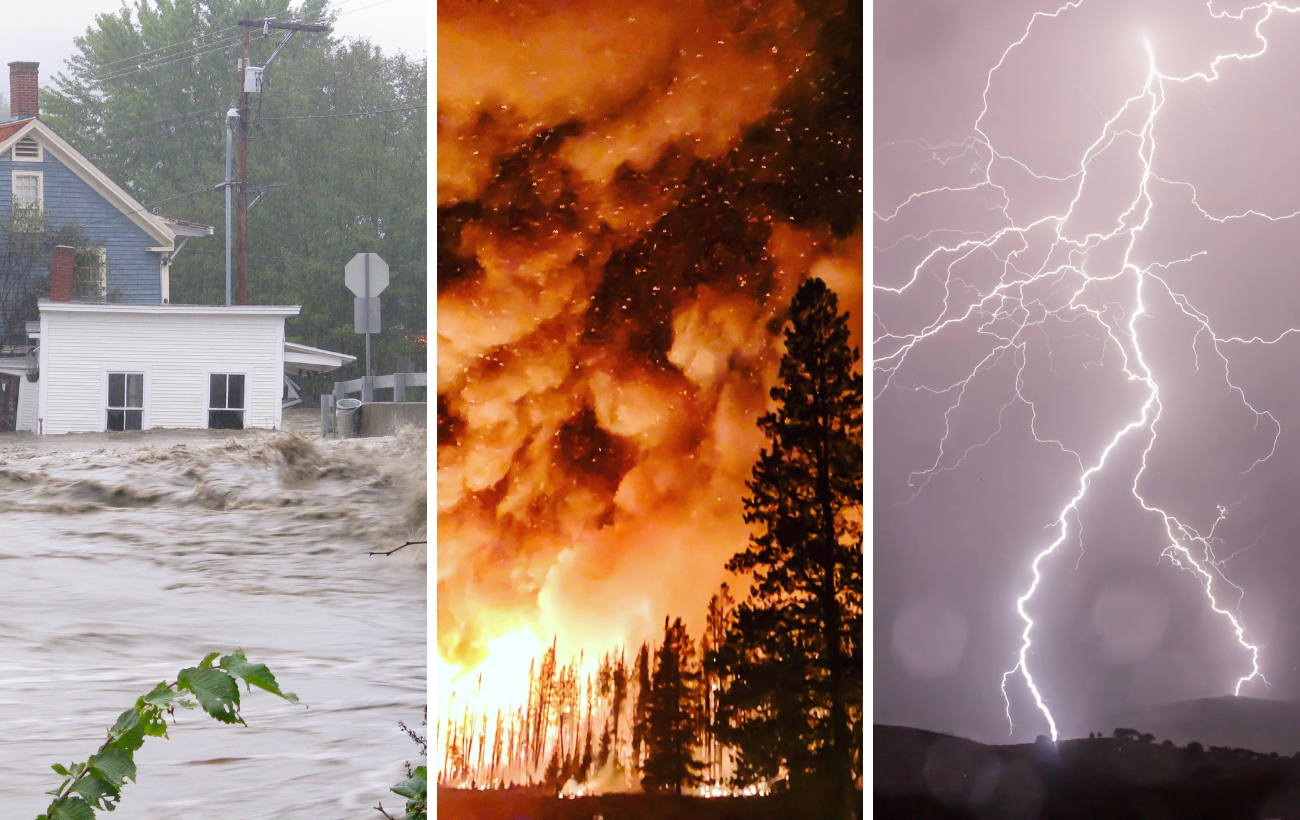Forest fires, floods, heat waves, torrential rain… individuals and collectives are now facing the many consequences of climate change. It is one of our most complicated and urgent challenges. Signs of these changes are already visible all over the world. Faced with this reality, it is imperative that we take concrete measures to prevent and manage the consequences of these changes which will only intensify in the future.
The Impacts of Climate Change are Already Here!
The consequences of climate change are already part of everyday life. Each season sees its number of climate risks and various events increase every year. More frequent and intense storms, prolonged droughts, deadly heat waves, inadequate snow cover, forest fires, floods … These events are no longer long-term predictions, but rather a tangible reality that significantly impacts our daily lives and environment.
Joanna Eyquem, a member of the Intact Centre on Climate Adaptation’s management team, explained to La Presse: “Climate risks are not an environmental problem of the future. They are a financial and pressing problem. The public and private sectors must act now.”
Collective Consciousness is Necessary
Faced with these many challenges, collective consciousness is crucial. Each person must understand the urgency to act to preserve the planet and ensure a viable future for future generations. This requires concrete actions coordinated at every level, from the engaged citizen to national and international policies.
The Importance of Preserving and Managing Water
The preservation and management of fresh water is at the heart of the efforts to adapt to climate change. Water is a vital element for the survival of every lifeform on earth, and its quality and availability are directly threatened by the effects of climate change.
The preservation and management of fresh water are not only local issues, but global challenges that touch every aspect of our lives: our environment, our economy, our health, etc. By adopting sustainable practices and investing in adapted infrastructures, we can contribute to preserving this vital resource for present and future generations.
Although many participants and stakeholders have proven this through the Study on Freshwater in Canada conducted by the Standing Committee on Environment and Sustainable Development, the 2024 Canadian budget did not put the emphasis we were expecting on the key questions of droughts, floods, and water supply.
Prevention Rather than Cure: Managing Emergencies isn’t Enough
Faced with climate challenges, it is essential to adopt a proactive approach focused on preventing rather than reacting to crises. Managing emergencies is crucial, but it cannot fix long-term problems on its own. It is time to invest in preventative measures in order to reduce the negative impacts of climate change on our water resources.
Nan-b de Gaspe Beaubien, chair of the Foundation’s board and founder of AquaAction, explains:” Engagement exclusively focused on managing emergencies and training firemen is not enough. We also need to prepare ourselves by investing in innovative technological solutions that will be able to supply the water necessary to fight fires without compromising water reserves for citizens.”
3.1. How to Prepare for Floods
Flooding is one of the most visible consequences of climate change, with extreme precipitations becoming more and more frequent. To prepare for this, we need to reinforce drainage infrastructures, rethink urban design in order to limit flood zones, and educate the population on which actions to take in case of a flood.
“To better prevent flooding, we must systematically prioritize solutions based on nature in every type of environment. For example, by building more green roofs, more parks, more river layouts where we let nature take over our riverbanks, etc. We have to be ingenious, innovative, and creative”, explains Dominique Monchamp, Executive Director of the Foundation and coordinator of the Canadian Coalition for Healthy Water.
3.2. How to Reduce the Risk of Forest Fires
Forest fires are another issue exacerbated by warmer and drier climate conditions. To reduce this risk, it is crucial to run awareness campaigns on fire prevention, put into place measures to manage forest fuels, and improve the coordination of emergency services for a rapid and efficient response.
Experts from the FireSmart program recommend eliminating all fuels within a 0-1,5 m range as well as eliminating all the resinous plants within a 10 m radius around our house, and within a radius of 10-30 m, conifers should be pruned and separated in such a way that there is at least 5 m between each tree.
Obviously, these measures reduce the risk, but do not eliminate it completely. “We need to be aware that we live in an environment where there are forest fires, that measures like these can help, but we may still need to evacuate because of smoke or because a fire becomes uncontrollable.”, clarifies the highly skilled researcher, Sylvie Gauthier.
3.3. How to Prepare for Extreme Heat Waves
Extreme heat waves are becoming more and more frequent, endangering the health and wellbeing of vulnerable populations. In order to prepare for these episodes, it is essential to reinforce our healthcare infrastructures, provide refreshment areas accessible to everyone, and bring awareness to the steps to take to protect ourselves from excessive heat.
 |  |  |
Towards a Resilient Future: Working Together to Face Climate Change
The prevention and management of the consequences of climate change are major challenges that require collective and coordinated action. By focusing on preserving and managing fresh water, adopting preventative measures, and preparing ourselves for the inevitable impacts, we can contribute to creating a more resilient and sustainable future for everyone. The fight against climate change can no longer be postponed; it must become our priority today.


